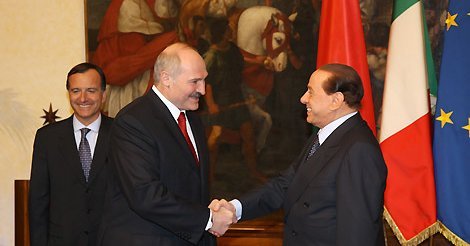The status of Belarus in Europe has always been delicate: this former Soviet republic - blatantly pro-Russian, from where the label of “outposts of tyranny” (Condoleeza Rice, 2005) - embodies the model of New Millennium’s autarchy.
Thanks to its strategic position (at the crossing of the gas pipelines connecting Russia to Europe) Belarus has played since the fall of the Berlin Wall a fundamental role for the Eastern European geo-political scenario.
Alexandr Lukashenko, who continuously governed the country since 1994, has coupled an unpredictable and unscrupulous foreign policy with a capillary control of public opinion and a severe repression of political opposition. At present the freedom of press in the country is suspended, as well as the freedom of assembly and association.
All elections held in recent years ended up with plebiscitary results, i.e. up to 90% in favour of the ruling party. An explanation for such absurd majorities has often been offered by international organizations. The OECD declared the 2006 elections as not complying with democratic standards, while the European Parliament called for a set of targeted sanctions against members of the Lukashenko regime following the 2004 constitutional referendum, which paved the way for a further re-election of the dictator in 2006 (the third in a row).
At present the freedom of press in the country is suspended, as well as the freedom of assembly and association.
Taking into account the imprisonment of political opponents, the ban on demonstrations and the climate of fear inoculated by the institutions - which, by the way, actively engaged during the vote to guarantee Lukashenko’s victory - it seems hard to defend the legitimacy of results.
It should not be forgotten, moreover, that human rights protection in Belarus is still extremely jeopardised. Belarus is the only European country which is not yet member of the Council of Europe (and, therefore, of the European Convention on Human Rights), but also the last one that foresees and applies capital punishment.
Several campaigns have been led by international organizations and associations to oppose Lukashenko’s dictatorship: among others, JEF demonstrated against the strong limitations imposed by Lukashenko on freedom of expression and information by gagging statues in over 80 cities during its Belarus Action.
On 30 November the Italian Premier Silvio Berlusconi visited the city of Minsk for a bilateral meeting with Lukashenko. One could legitimately wonder why the Prime Minister of an EU member state should opt for an official visit to Belarus, after 15 years of diplomatic - and very well motivated - isolation of the country. The mere fact of sharing the same nickname, created by the respective fans (“papi”=daddy for Silvio, and “bat’ka”=father for Alexandr) does not seem a sufficient reason. Neither can we believe that Berlusconi is visiting the capitals of the less democratic regimes in the neighbourhood (his friendly relationship with Putin and Gheddafi are notorious) just to admire their architectural style.
Even if we approved the realpolitik followed by the current Italian Government - which had no scruples to make deals with Libya about migrants’ lives, nor to dialogue with Putin while journalists defending freedom of information in Russia were assassinated - at least Berlusconi could have speared us some of his declarations.
What is left, after this exchange of formalities and KGB secrets, is a European policy that pays the consequences of its own fragmentation, only 24 hours before the first EU High Representative, foreseen by the Lisbon Treaty, takes office. Her role will be decisive to ensure that such a shame will not be repeated: the European foreign policy - as we knew and experienced it until now - may (finally) be at a turning point. The main hope is that Ms. Catherine Ashton will be able to manoeuvre with authority among member States’ resistances and to guarantee to the EU a political role suitable to tackle future challenges, without repeating embarrassing and unfair episodes such as the one we just had to witness.

1. On 6 December 2009 at 23:20, by Frank Stadelmaier Replying to: Berlushenko
Replying to: Berlushenko
Silvio Berlusconi - the pride of Europe... Thanks for this article.
Follow the comments: |
|
